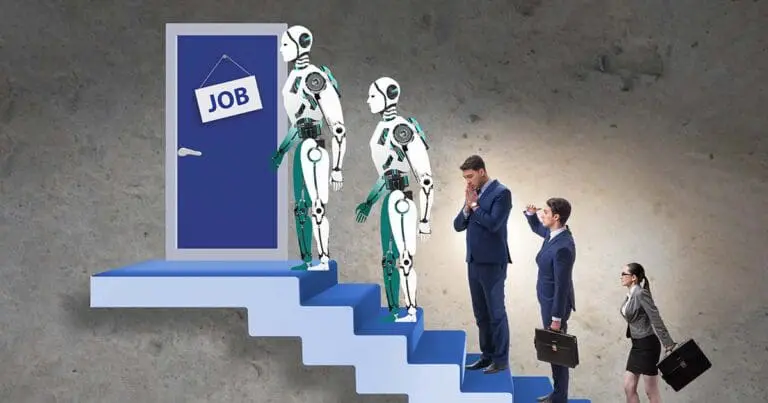The Ethics of AI in Recruitment: Balancing Efficiency and Equality

A recent survey shows that over 60% of companies use AI in their recruitment processes, but concerns about fairness and bias are growing.
As AI continues to transform the hiring process, it is essential to explore the ethical considerations of using AI in recruitment, emphasizing the need to balance efficiency and fairness to create an equitable hiring process.
The rise of AI in recruitment
AI has evolved significantly in recruitment, from initial screening tools to advanced machine learning algorithms.
Today, AI-driven recruitment systems are used for resume screening, interview scheduling, and predictive analytics, providing valuable insights to hiring managers.
AI-powered tools like these can help to streamline the recruitment process, allowing for efficient candidate matching and selection.
Benefits of AI in recruitment
Benefits of AI in recruitment include efficiency, consistency, and data-driven insights.
Efficiency
AI streamlines the recruitment process, saving time and resources.
By automating repetitive tasks such as resume screening and interview scheduling, AI-driven recruitment processes enable recruiters to focus on more strategic aspects of hiring.
This efficiency is crucial in managing vast amounts of applications and identifying qualified candidates quickly.
Consistency
The ability of AI to provide consistent evaluations based on predefined criteria ensures fairness in candidate selection.
Unlike human judgment, which can be influenced by human biases and unconscious biases, AI applies the same decision-making criteria to all applicants.
This consistency helps minimize biased outcomes and promotes a fair recruitment process.
Data-driven insights
Leveraging data to make informed hiring decisions is a significant advantage of AI.
Data-driven insights derived from candidate profiles, job descriptions, and social media profiles help recruiters gain deeper insights into potential candidates.
These insights aid in creating effective candidate matching strategies, improving the overall quality of hiring decisions.
Ethics of AI challenges and concerns
Ethics of AI challenges and concerns include bias and discrimination, transparency and accountability, and privacy.
Bias and discrimination
While AI has come a long way in a short time, it can still perpetuate existing biases if not properly managed.
Historical biases embedded in training data can lead to discriminatory outcomes, including numerous examples of biased AI systems in recruitment, where AI has made decisions based on factors like race, gender, or educational background.
Case studies show that companies have faced backlash due to biased AI tools, highlighting the need for careful management of AI-driven recruitment processes.
Transparency and accountability
Understanding how AI algorithms make decisions is crucial for maintaining ethical standards in recruitment.
Lack of transparency in algorithmic decision-making can lead to distrust and ethical concerns.
Companies must ensure that their AI-based decision-making processes are transparent and accountable, allowing candidates to understand how AI is used in their recruitment practices.
Privacy
Concerns over data security and the handling of sensitive candidate information are paramount.
As AI systems process personal privacy data, ensuring robust access controls and protecting candidate privacy is essential.
Companies must address privacy concerns by implementing stringent data protection measures to safeguard candidate information.
Ethics of AI in balancing efficiency and fairness
Ethics of AI in balancing efficiency and fairness involves developing ethical AI systems, human oversight, transparency practices, existing regulations, and future outlooks.
Developing ethical AI systems
Strategies for creating AI tools that prioritize fairness include incorporating diverse data sets and performing regular audits and updates of AI algorithms.
These practices help mitigate potential biases and ensure that AI-driven recruitment tools adhere to ethical principles and societal values.
Developing ethical AI systems is a key principle in balancing efficiency with fairness.
Human oversight
The role of human recruiters in overseeing AI decisions is critical to maintaining ethical standards.
Human involvement in the decision-making process ensures that AI-generated outcomes are aligned with human values and ethical AI practices.
Human oversight helps in addressing unintended consequences of AI-driven decisions and upholding human dignity in recruitment.
Transparency practices
Implementing transparent practices helps candidates understand how AI is used in the recruitment process.
Providing clear information about AI’s role in candidate selection and decision-making criteria builds trust and ensures accountability.
Transparency is essential for addressing ethical issues and promoting fair and inclusive recruitment practices.
Existing regulations
Remainig compliant with current laws and regulations governing the use of AI in recruitment is essential.
Regulations such as GDPR and EEOC guidelines set the legal framework for AI-based recruitment tools, ensuring compliance with legal standards and protecting individual rights.
Future outlook
Potential future regulations will likely address emerging ethical concerns and technological innovations in AI.
Companies must prepare for these changes by staying informed about regulatory developments and adapting their AI-driven recruitment strategies accordingly.
Proactive compliance with the legal framework ensures ethical and fair recruitment practices.
Best practices for ethical AI recruitment
Best practices for ethical AI recruitment include ethical AI frameworks, training and education in AI ethics, and collaboration around the ethics of AI.
Ethical AI frameworks
Developing a framework for ethical AI usage in recruitment involves defining ethical standards and ensuring that AI systems align with organizational values.
This framework guides the ethical development and deployment of AI tools in the hiring process.
Training and education in AI ethics
Ensuring that recruitment teams are educated about the ethical implications of AI is crucial.
Training programs should cover topics such as potential issues related to AI-driven recruitment, human judgment, and ethical practices.
Education helps recruiters make informed decisions and uphold ethical standards.
Collaboration around the ethics of AI
Working with external experts and stakeholders to improve AI systems is essential.
Collaboration with AI ethics specialists, industry leaders, and regulatory bodies ensures that AI-powered tools meet ethical and legal requirements.
This collective effort enhances the fairness and effectiveness of AI-driven recruitment systems.
Using AI ethically in recruitment
Balancing efficiency and fairness in AI-driven recruitment is essential for creating an equitable hiring process.
Companies must prioritize ethics in their AI recruitment strategies by addressing ethical concerns, ensuring human intervention, and promoting transparency.
Reflecting on the future of AI in recruitment, it is crucial to continue the effort to balance technological progress with ethical principles, ensuring that AI serves as a tool for inclusive and fair hiring practices.
Looking to hire top-tier Tech, Digital Marketing, or Creative Talent? We can help.
Every year, Mondo helps to fill over 2,000 open positions nationwide.
Continued Reading…
- Can AI Write My Cover Letters? Tips and Prompts
- How to Answer “Tell Me About a Time You Failed” in an Interview w/Sample Answers
- How to Answer “Why Should We Hire You?” in an Interview With Sample Answers
- Can AI Write My Resume? Pros, Cons, Tips & Prompts
- How to Answer “Tell Me About Yourself” in an Interview With Sample Answers
- What Is a Panel Interview and How to Ace Your Next One
- How to Answer ‘Why Are You Leaving Your Current Job?’ in an Interview
- How to Answer “How Do You Define Success?” with Interview Sample Answers
- How to Answer ‘Why Are You the Best Person for This Job?’ in an Interview
- How to Answer “Where Do You See Yourself in 5 Years?” During an Interview


